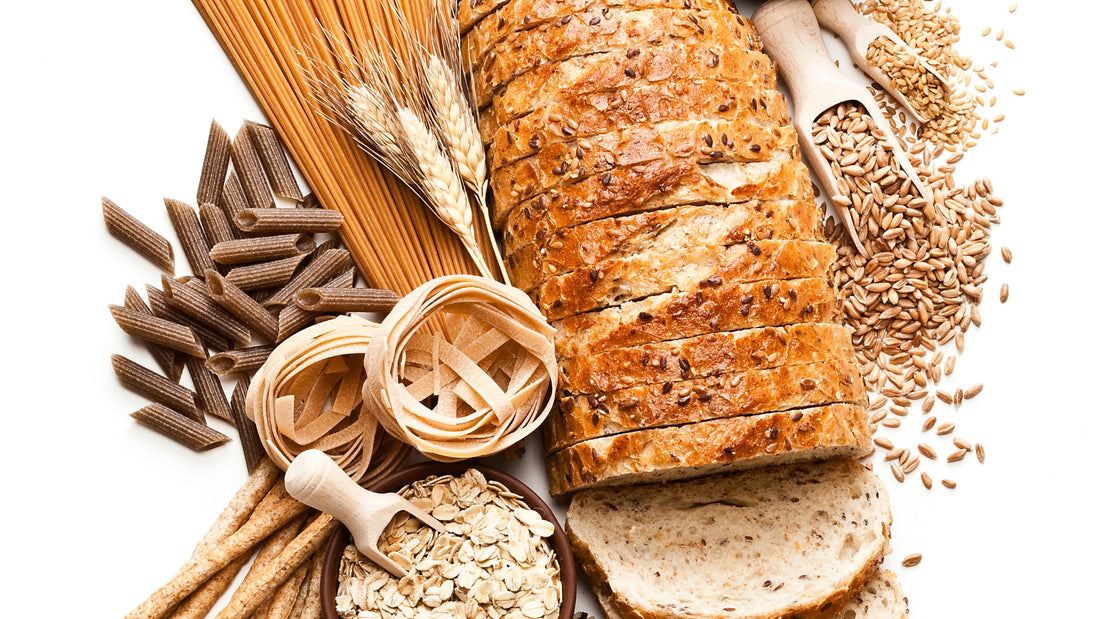In the realm of nutrition, dietary fiber stands as an essential component, often lauded for its pivotal role in promoting digestive health, managing weight, and reducing the risk of chronic diseases. However, not all fibers are created equal. Delving into the nuances of various types of dietary fiber unveils a spectrum of benefits that can significantly impact overall well-being. Let's embark on a journey to understand the diverse world of dietary fiber and the unique advantages they offer.
1. Soluble Fiber: The Cholesterol Champion
Definition: Soluble fiber dissolves in water, forming a gel-like substance in the digestive tract.
Sources: Oats, barley, legumes, fruits (such as apples, oranges, and berries), vegetables (like carrots and broccoli).
Benefits:
Cholesterol Management: Soluble fiber binds to cholesterol in the digestive system, aiding in its excretion and contributing to lower LDL (bad) cholesterol levels.
Blood Sugar Regulation: By slowing down the absorption of glucose, soluble fiber helps stabilize blood sugar levels, making it beneficial for individuals with diabetes or those at risk.
Gut Health: Soluble fiber serves as a prebiotic, nourishing beneficial gut bacteria and fostering a healthy gut microbiome.
2. Insoluble Fiber: Nature's Broom
Benefits:
Improved Digestive Health: Insoluble fiber promotes regularity and helps prevent constipation by adding bulk to stool and speeding up its passage through the digestive tract.
Colon Health: It may reduce the risk of diverticulitis and hemorrhoids by keeping the colon healthy and preventing the formation of pouches and inflammation.
3. Resistant Starch: The Gut Guardian
Definition: Resistant starch resists digestion in the small intestine and ferments in the large intestine.
Sources: Whole grains, legumes, green bananas, cooked and cooled potatoes, and rice.
Benefits:
Blood Sugar Control: Resistant starch has a minimal impact on blood sugar levels, making it suitable for individuals with diabetes or those seeking stable energy throughout the day.
Improved Colon Health: It promotes the production of short-chain fatty acids in the colon, which support colon health and may reduce the risk of colorectal cancer.
Enhanced Satiety: Resistant starch contributes to feelings of fullness and satiety, aiding in weight management and appetite control.
4. Functional Fibers: Tailored for Health
Definition: Functional fibers are non-digestible carbohydrates added to foods or supplements to provide specific health benefits.
Sources: Inulin, chicory root extract, psyllium husk, beta-glucan.
Digestive Health: Functional fibers support digestive health by promoting the growth of beneficial gut bacteria and improving bowel regularity.
Weight Management: They increase satiety and reduce calorie absorption, making them useful for weight management and appetite control.
Heart Health: Certain functional fibers, such as beta-glucan, can help lower cholesterol levels and reduce the risk of heart disease.
Conclusion
Dietary fiber encompasses a diverse array of compounds, each offering distinct health benefits. By incorporating a variety of fiber-rich foods into your diet, you can harness the full spectrum of benefits that dietary fiber has to offer. From promoting digestive health to supporting heart health and blood sugar control, fiber-rich foods are essential for overall well-being.
Incorporating fiber-rich foods into your meals doesn't have to be complicated. Simple swaps like choosing whole grains over refined grains, snacking on fruits and vegetables, and adding legumes to soups and salads can significantly boost your fiber intake.
As you embark on your journey toward a healthier lifestyle, let the fiber spectrum guide you, offering a wealth of nourishment and vitality with every bite.
References:
Mayo Clinic. (2021). Dietary fiber: Essential for a healthy diet. Link
Harvard T.H. Chan School of Public Health. (n.d.). The Nutrition Source - Fiber. Link
National Institutes of Health. (2019). Dietary fiber: Essential for a healthy diet. Link
Slavin, J. (2013). Fiber and prebiotics: Mechanisms and health benefits. Nutrients, 5(4), 1417–1435. Link
By consulting these references, you can delve deeper into the science behind the benefits of different types of dietary fiber and make informed choices to support your health and well-being.

